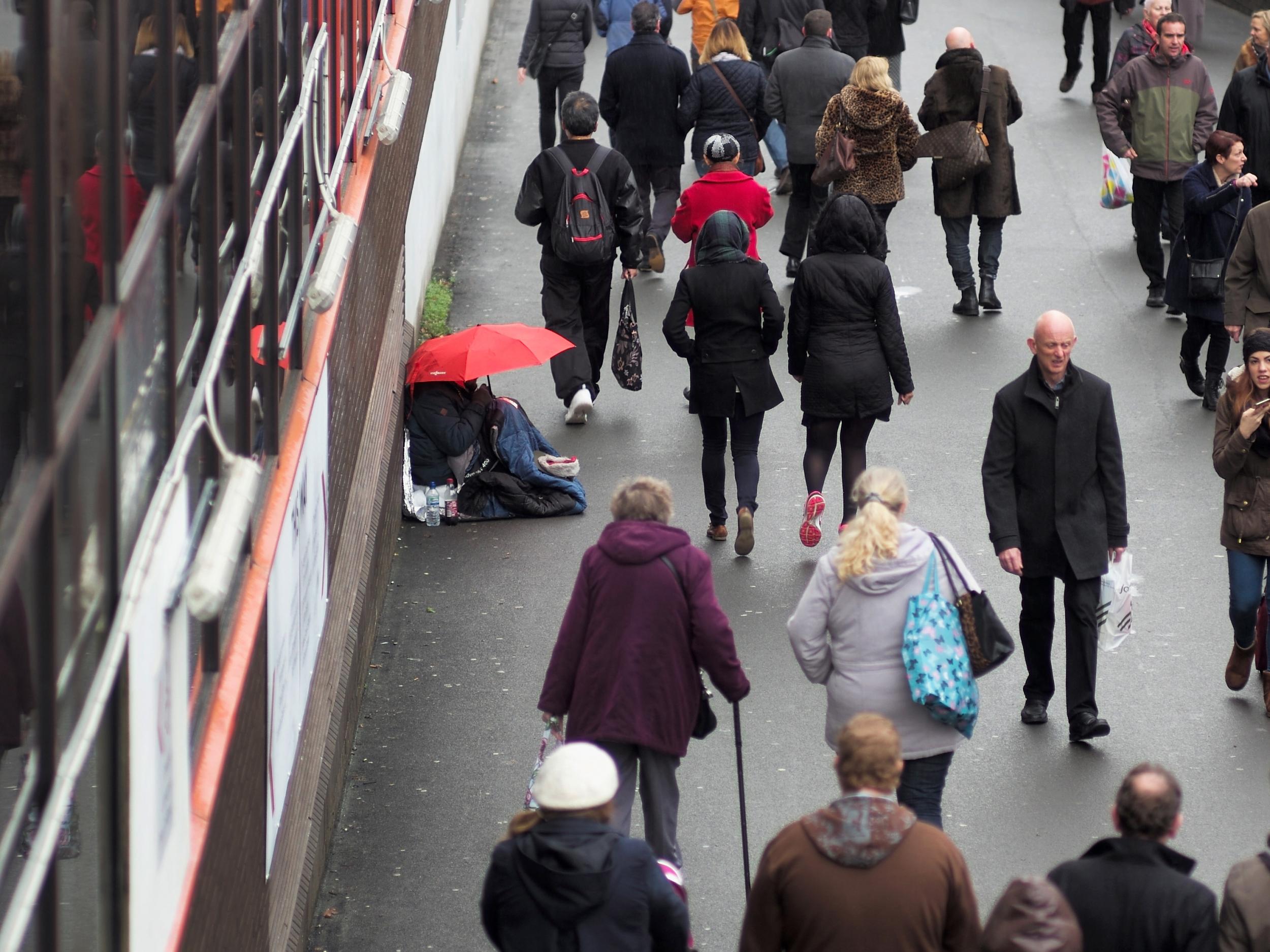The new equality report shows the future for poor and disadvantaged children in modern Britain is bleak
The EHRC report makes clear how much Theresa May still has to do to end the 'burning injustices' in society as she pledged in 2016

The only significant cause for argument in the Equality and Human Rights Commission report on equality in the UK is that it downplays the extent of the challenges facing the nation. In adopting as its main benchmark the EHRC survey of 2015, it understates the trend towards narrowing opportunity that has been taking place since the 1980s. Britain is certainly a far wealthier society as a whole than it was when Margaret Thatcher took power almost four decades ago – but it is also one where inequalities of outcome and of opportunity are also, in many cases, far too pernicious.
The report has added poignancy, given that Theresa May made such an arresting call to end the “burning injustices” in society when she came to office in 2016. Few would expect her to deliver on many of her pledges, if any, in such a short space of time. But the EHRC makes clear, to be generous to her, how much she still has to do in order to live up to the exacting standards she set herself. Instead she has been overtaken by the Grenfell and Windrush scandals – themselves evidence of inequality of esteem and respect – and, of course, the Brexit saga, which leaves little energy anywhere in government for other tasks (one of the many tragedies of leaving the EU on an imperfect mandate).
Still, there are signs of progress, which it is only right to acknowledge (though they may have little to do with government policy). The last four years, says the EHRC, have seen some notable positives. Britain's surprisingly buoyant labour market means that more women, black people and those of Pakistani origin are in employment, and (perhaps part of the Corbyn phenomenon) more are engaging in politics. More people are online, helping reduce the digital exclusion especially experienced by some older citizens. New regulations have forced recognition of the gender pay gap, and, though imperfectly, quantified it in large organisations. More young people are attending university, and more from the poorer sections of society previously underrepresented.
Yet the litany of negatives means that no one should be under any illusions about the prospects for the children of the poor and disadvantaged in modern Britain. They are, in some respects, worse than they were four years ago and may be as bad for some as they have been since the arrival of the welfare state after the Second World War.
One striking fact throughout the EHRC report is that inequalities are themselves spread unevenly. While Indian people continue to succeed in education and at work, black African, Pakistani and Bangladeshi people do not, and are more likely to experience severe deprivation. Gypsies, Roma and Travellers face “multiple” disadvantages that continue to hold them back.
There is also a depressing story to be told about those with disabilities. For all the very welcome and heartening coverage of events such as the Paralympics, the fact is that society has turned unexpectedly hostile in some quarters. Disabled people are finding themselves increasingly excluded from mainstream society, starting in education. The EHRC says that the disability pay gap persists, and disabled people are more likely to live in poverty. Most shocking, there has been a sharp increase in recorded disability hate crimes, and disabled people experience high rates of domestic abuse and sexual assault.
So, a dispiriting catalogue of familiar social evils, but one that any government has a moral obligation to address. The prime minister has acknowledged as much. And yet she is constrained by the policy of austerity that has been pursued since the fall of the Brown government in 2010. Whether the extent of the policy is justified, and whether particular measures of successive governments can be defended, mistakes have been made – and some of the most vulnerable in society have been made to pay far too high a price to repair the damage to the public purse caused by the financial crisis and recession.
Improvements in public services, especially in schools, hospital and social care, can drastically reduce poverty. Much the same can be said for the supply of social housing virtually abandoned for decades. Changes in the law, as we have seen with the gender pay gap, can also force the private sector to look to its own record. On the other hand, the roll-out of the doomed Universal Credit threatens to devastate the lives of many who depend on the state for the very necessities of life.
The end of austerity – about which the prime minister seems inconsistent to the point of confusion – may help ameliorate some of the social evils that stalk the land. But a more radical approach can only be sustained if it is underpinned by a healthy, growing economy. Brexit means that, even with political will, the money to expand equality of opportunity and redress inequality of income and wealth will be scarce. Brexit will inflict many casualties on many communities; the saddest fact is that the poorest are likely to be hit hardest of all.


Join our commenting forum
Join thought-provoking conversations, follow other Independent readers and see their replies